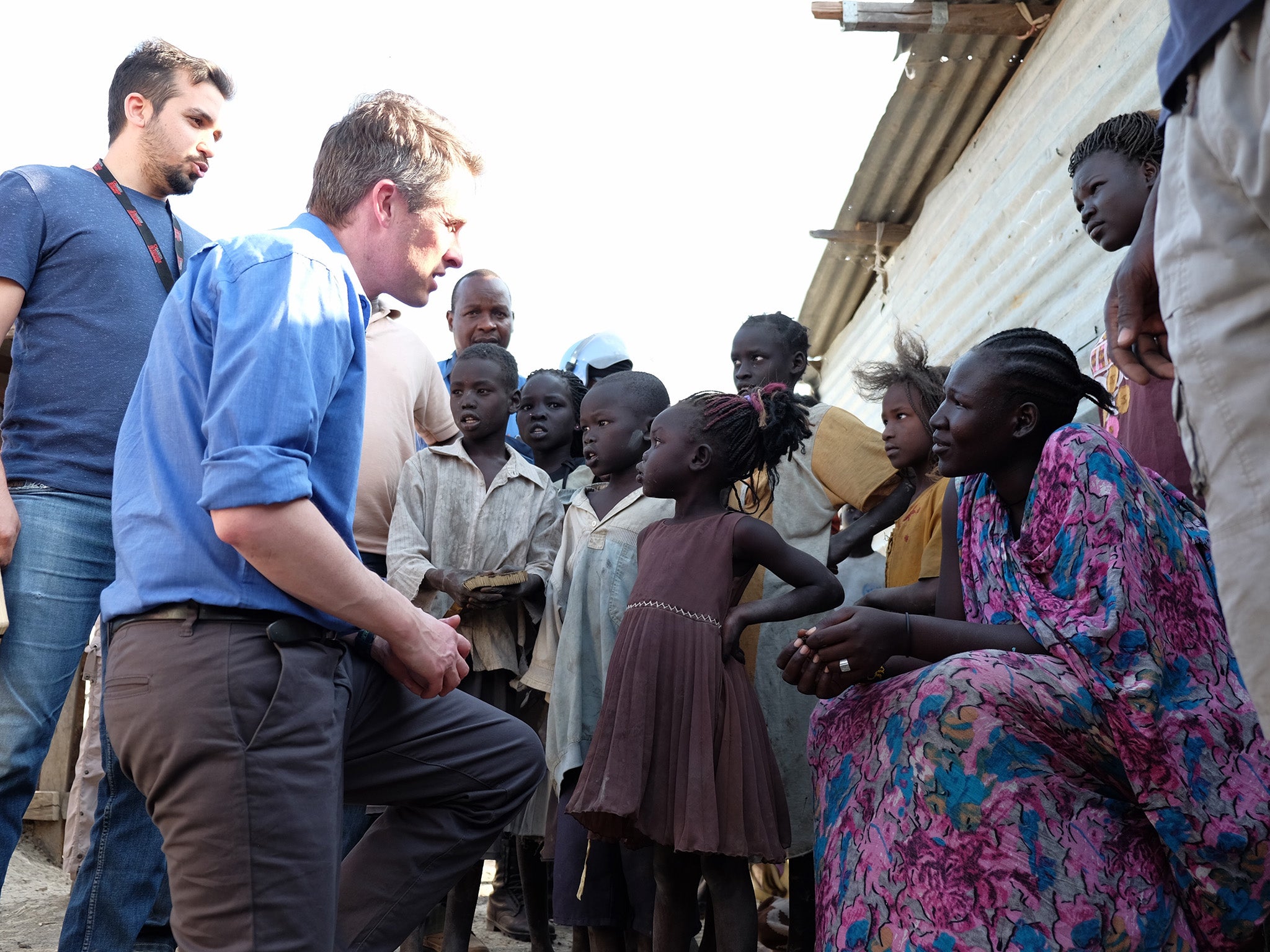UK first country to put ‘human security’ at core of defence policy
The MoD programme will focus on countering sexual abuse, use of child soldiers, and human trafficking

Your support helps us to tell the story
From reproductive rights to climate change to Big Tech, The Independent is on the ground when the story is developing. Whether it's investigating the financials of Elon Musk's pro-Trump PAC or producing our latest documentary, 'The A Word', which shines a light on the American women fighting for reproductive rights, we know how important it is to parse out the facts from the messaging.
At such a critical moment in US history, we need reporters on the ground. Your donation allows us to keep sending journalists to speak to both sides of the story.
The Independent is trusted by Americans across the entire political spectrum. And unlike many other quality news outlets, we choose not to lock Americans out of our reporting and analysis with paywalls. We believe quality journalism should be available to everyone, paid for by those who can afford it.
Your support makes all the difference.The Ministry of Defence has launched a programme for the British military to focus on protecting civilians from sexual violence and others forms of human rights abuse in conflict zones.
The UK becomes, with the move, the first country to officially place “human security” in the core of defence policy, says the government, and work has begun with allies to extend the scheme in peacekeeping missions with training provided for troops in Kenya, Malawi and Nigeria.
Selected service personnel will attend a “Centre of Excellence for Human Security” before deployment abroad on a range of issues including countering sexual abuse, use of child soldiers, human trafficking, understanding of different cultures and saving sites of heritage.
Female personnel in the armed forces have played a leading role in the drive to introduce the programme, drawing on their experiences from serving in conflict zones where atrocities against civilians, especially sexual assaults, has been particularly prevalent.
Announcing the opening of the centre for excellence on Thursday, Gavin Williamson, the defence secretary, said: “In modern warfare there is no ‘front line’ and the sad reality is that innocent bystanders are in harm’s way in conflicts around the world. Protecting civilians from human rights violations is as much a military task as defeating the enemy.
“This new centre of excellence will build on the amazing work already being done by the UK, from our human security courses to the training we provide peacekeepers on preventing and responding to sexual violence in conflict.”
Mr Williamson recently visited South Sudan where sexual assaults have been virulent and endemic in a brutal civil war. He raised the issue with the country’s president, Salva Kiir Mayardit, and stressed that tackling the problem would be one of the main aims of a British military mission which has been sent there.
The Independent spoke extensively during the visit to women who have suffered abuse.
Alain Noudeohou, the UN secretary general’s deputy special representative to South Sudan, who is from Gabon, observed: “I have served in a number of counties and heard about the issue with sexual violence even before I came here. Why is this the case? I think that is a very important question and needs to be looked at.”
A British military unit, part of the UN Mission to Sudan (Unmiss) built a road for the World Food Programme to deliver supplies to remote villages as part of the efforts to stop sexual assaults. The area had become notorious for attacks on women who had been forced to travel 60km (37 miles) to collect aid from a depot. In one period of 10 days 125 girls and women, aged between eight and 80, were beaten, robbed and raped on a road near the town of Bentiu.
In modern warfare there is no ‘front line’ and the sad reality is that innocent bystanders are in harm’s way in conflicts around the world. Protecting civilians from human rights violations is as much a military task as defeating the enemy
The commanding officer, 37-year-old Major Alanda Scott, of the Royal Engineers, said: “What happened was appalling, it was terrible. These women had been forced to walk the road to get food, they have been watched by the men who then carried out the attack.
“Unfortunately it is the case that gender-based sexual violence has been used, as we know, in Sudan as a weapon of war. On this occasion we could do something to help and we were very glad to do so.”
Join our commenting forum
Join thought-provoking conversations, follow other Independent readers and see their replies
Comments